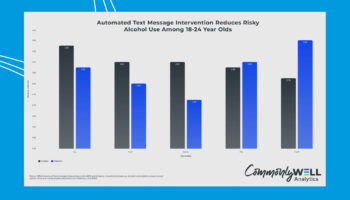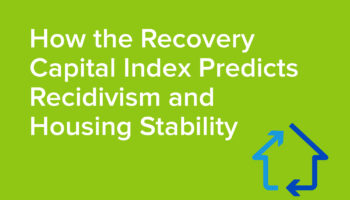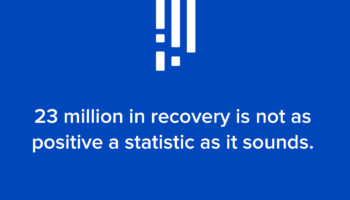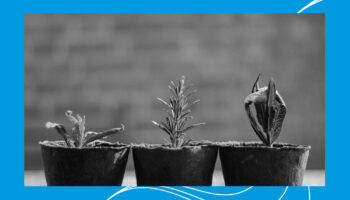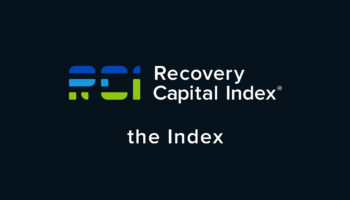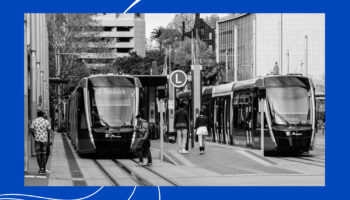Insights & Resources
Filtered by: Outcomes
Elements for good text prompts to improve survey response rates
Creating a relatable and engaging message prompts are key for client participation in assessments and surveys over time. But it all starts with a great opt-in sequence and welcome messages.
Read More →By David
7/22/23
Text message interventions reduce problematic alcohol use
Automated text messages reduce bing drinking episodes AND negative drinking consequences when focused on a particular use management strategy for 18-25 year olds.
Read More →By David
6/13/23
How the Recovery Capital Index Predicts Recidivism and Housing Stability
The Recovery Capital Index, by design, does not predict sobriety, but it can supply indications of return to use. When the data comes together with an individual’s story, we can design effective interventions based on that predictiveness. The number one question we get asked about the Recovery Capital Index (RCI) is, “Does it predict sobriety?”Answer: No. But it can supply indications of a problematic return to use or other behaviors.We understand why this is the question so many ask. It has everything to do with the traditional view of addiction; that recovery from addiction is synonymous with abstinence. Clinical care and society have long measured success as prolonged abstinence. So, it makes sense that most wonder about whether the RCI predicts sobriety.
Read More →By David
3/7/23
23 Million in Recovery: Not As Positive As It Sounds
Addiction and recovery advocates, for the last decade, have used 23 million people in recovery as their primary statistic to combat stigma and raise funds. Digging into the data, however, provides a more powerful narrative that recovery leaders and advocates need to know and use.
Read More →By David
2/24/23
Role of loss aversion in addiction recovery
Loss aversion is a strong behavioral and psychological bias that needs more attention and application in addiction careThe reason we need to incorporate more psychology and behavioral science into our care models is simple …The time to recover from addiction is unnecessarily long and difficult.
Read More →By David
11/30/22
Measuring beyond sobriety
A person you love seems to care about nothing of importance in their life. They disappear for days, weeks, maybe even months or years. At first, this person’s relationship to alcohol or drugs was no different than anyone else’s. But slowly then all at once, chaos. Addiction takes hold. It’s a vortex. Everyone gets sucked in.
Read More →By David
10/4/22
Don’t pick the outcome, pick the outcomes framework
When an organization picks a specific outcome, it will do whatever it needs to get that outcome.In the world according to Simon Sinek, this is a finite mindset. A finite mindset can ruin a business. In healthcare — and especially addiction care — it can destroy lives.Addiction treatment would be better if it adopted an infinite mindset.
Read More →By David
3/31/22
Connecting poor nutrition and low recovery capital
ISSUE #2 — The IndexLast week, I read a story about a company in Sweden that is placing unstaffed, mini supermarkets in rural communities around the country. These supermarkets are essentially the size of mobile home or a couple shipping containers. They include the basics but also high-quality produce, organics, and non-processed foods. The shops are appearing in communities where the only grocery or convenience stores have closed because of falling profits and residents leaving for bigger cities. What makes these shops work in the rural communities is that they are unstaffed. Shoppers use a mobile app to scan and pay for what they take from the shop. Suppliers stock the shops, which is choreographed by the data collected and analyzed. WHAT DOES AN UNSTAFFED, TECH-ENABLED, SHIPPING CONTAINER SHOP IN SWEDEN HAVE TO DO WITH RECOVERY CAPITAL?
Read More →By David
3/18/21
On transportation and addiction recovery
As a reader of this newsletter, you now know that addiction is a lens through which I will view inequities, barriers, and poor design. With limited exceptions, addiction is a condition that manifests over time and through repetition. Reversing the effects of addiction are incredibly difficult because our environment isn’t optimized for health or to make life easy — unless of course you have the things needed to navigate the environment (in which, life is never really easier, just easier).
Read More →By David
3/7/21

